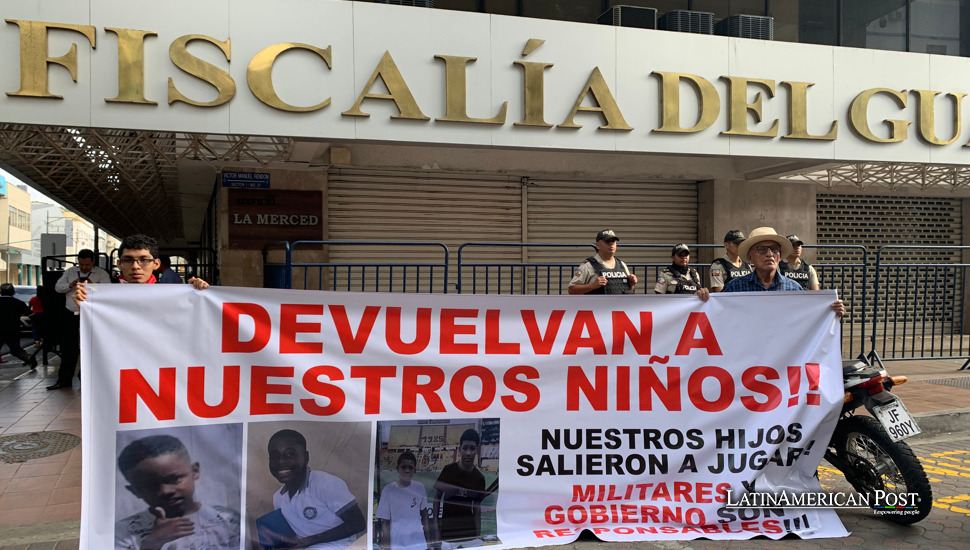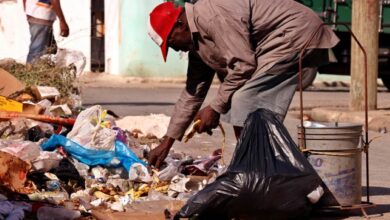Ecuador Must Act Now to Find Justice for Missing Children

The recent disappearance and probable murder of four children in Ecuador has exposed big problems within the country’s justice system. (Prolonged inquiries into military involvement in this catastrophe) – disgraceful neglect – highlights deep-seated issues in managing human rights violations. The government must quickly deliver justice to the victims’ families and rebuild public confidence in its institutions.
A Tragic Delay That Cannot Be Excused
The case of the four missing children, aged 11 to 15, in Guayaquil, has gripped Ecuador with outrage and despair. Surveillance video shows men in military clothes taking two children – it was given to authorities a day after they disappeared on December 8. But, it took 15 days for officials to start looking into the military’s role. During this time (a critical window), families asked publicly for answers ‒ but authorities stayed quiet.
These delays are unacceptable. Families who lost their kids – suffer more with each passing day. Later, four burned bodies were discovered near a military base ‒ this find deepens the agony. If these bodies are confirmed as the missing kids, the tragedy is even worse (quick action might have saved them).
Justice late is justice denied; this delay raises unsettling questions about the government’s care for its people. Why was public pressure needed for authorities to act on clear evidence ‒ of wrongdoing? The families (and all Ecuadorians) deserve answers.
Military Accountability in Question
Ecuador’s military has been increasingly relied upon to combat rising gang violence, but its involvement in human rights abuses has sparked growing concern. In this case, 16 soldiers from the Taura Air Force Base have been arrested and are expected to face charges of forced disappearance. The Defense Minister admitted that the patrol linked to the abductions was unauthorized, but this acknowledgment does little to mitigate the outrage.
This is not an isolated incident. In August, two kids vanished in Los Ríos Province ‒ their cases involved soldiers. A different event: a 19-year-old was shot and killed by a soldier at a Guayaquil checkpoint. These frequent occurrences suggest soldiers are avoiding consequences.
The military’s role in battling drug cartels and gangs matters, but not if human rights suffer. The government’s failure to take responsibility erodes public trust ‒ and raises doubts about its security plan’s success.
The Broader Crisis of Violence
Ecuador battles a surge in violence – driven by drug cartels’ growing power. Since 2021, the homicide rate has tripled; gangs extort citizens – forcing thousands to escape. President Daniel Noboa turns to the military for problem-solving, yet soldier misconduct reveals a flawed system.
Unrest grows (as security remains fragile). Families are terrified – worrying about children going missing. Ecuadorians want action beyond empty words; they yearn for proper measures to address the core problems and protect society’s most vulnerable.
Delay Is Not an Option
The tragic disappearance of the four children must serve as a wake-up call for Ecuador’s government. Putting off inquiries into such serious accusations isn’t just a justice failure; it’s a betrayal of the country’s core values. Immediate action is needed for accountability: this includes a transparent, in-depth probe into military involvement.
President Noboa should also focus on sweeping reforms ‒ attacking the root causes of violence and corruption. This includes better oversight of the military, investment in local policing, and support for community programs that address the socioeconomic factors driving gang activity.
The government must also confront its growing reliance on the military to solve civilian problems. While the armed forces have a very important job in keeping everyone safe, they should follow the best rules—nothing less should be accepted. Otherwise, people may lose their trust even more, and violence could continue.
Also Read: Fuel Theft and Violence Cripple Ecuador’s Oil Industry
Ecuador faces a big decision. The missing and probably dead four children is an unfortunate event needing quick answers. The government must act fast for justice. Punishing those guilty and fixing the deeper problems in the system helps Ecuador start over (gain trust). This kind of horror should not happen again. Justice must be fast, precise, and strong ‒ there should be no waiting around.





